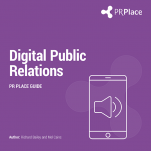Gamechanger: the rules of digital PR
Download our free guide to Digital PR!
So, public relations practitioners have needed to get digital while search marketing experts have needed to get PR.
Guide to Digital PR
Download our guide to Digital PR to understand:
- The transformational power of digital
- The convergence of PR and SEO
- The skills and knowledge needed to succeed in digital
- What’s on the horizon for digital PR

We respect your privacy and handle your data with care. Please see our privacy policy.
Thank you for downloading our guide. We hope you find it helpful and enjoyable. We are adding new ones all the time, so check back regularly.
If you asked us to keep you up to date with new guides and the latest industry insights, you will receive an email shortly asking you to verify the address we need to send them to.

